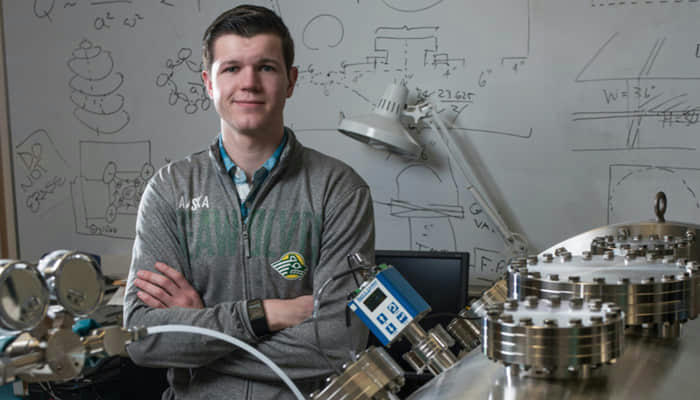Elevate Your Engineering Game Discover Free Certificate Courses in Mechanical Engineering

Are you a mechanical engineering student eager to deepen your expertise beyond your standard curriculum? You're in luck! We've assembled a collection of free certificate courses designed to boost your skills and elevate your profile in the job market. These courses encompass a broad spectrum of mechanical engineering topics, including innovative design, manufacturing techniques, and essential maintenance and management practices. Dive in and uncover the opportunities that can propel your career forward!
What Is Mechanical Engineering?
Starting out in mechanical engineering? This course is just what you need. It provides a comprehensive introduction to the fundamentals of the field, covering key topics like mechanics, thermodynamics, materials science, and more. By the end of the course, you'll have a solid grasp of essential mechanical engineering principles, laying a strong foundation for your future studies and career.
Mastering Design for Manufacturing and Assembly

A crucial skill for any successful mechanical engineer is designing products that streamline both manufacturing and assembly. This course is designed to teach you how to apply effective design principles to enhance production efficiency and simplify assembly processes. You'll explore various manufacturing techniques and learn how to select the most suitable methods for your projects, all while minimizing costs and reducing production time.
Through this course, you’ll gain valuable insights into optimizing design choices to improve manufacturability and ease of assembly. You'll also gain hands-on experience with different manufacturing processes, enabling you to make well-informed decisions that lead to more effective and cost-efficient designs. This knowledge will not only enhance your ability to create high-quality products but also prepare you to tackle real-world challenges in your engineering career.
Exploring Mechanical Vibrations and Structural Dynamics

This course offers an in-depth examination of how mechanical systems respond to vibrations and dynamic loads. A solid grasp of these concepts is crucial for designing structures that can withstand external forces while maintaining their integrity and stability.
• Vibration Analysis
Understand how different types of vibrations affect mechanical systems. Learn to identify sources of vibration and measure their impact using advanced diagnostic tools.
• Dynamic Load Response
Explore how structures react to varying loads and forces over time. Study the principles behind dynamic loading and its effects on structural performance.
• Mitigation Techniques
Discover various methods for reducing or controlling vibrations. Gain practical knowledge on designing components to minimize vibration issues and improve overall system reliability.
• Software and Tools
Get hands-on experience with industry-standard software used for vibration analysis and structural dynamics. Learn to model and simulate dynamic behavior to predict and address potential problems before they arise.
• Case Studies
Analyze real-world examples from aerospace, automotive, and other industries to understand how theoretical concepts are applied in practice. Learn from successes and challenges faced by professionals in the field.
Mastering Project Management for Engineers

In the world of mechanical engineering, strong project management skills are essential for driving projects to success. This course is designed to provide you with the critical tools and knowledge needed to effectively plan, organize, and execute engineering projects.
Defining Project Scope
Learn how to clearly outline project objectives, deliverables, and requirements to ensure all stakeholders are aligned and expectations are managed from the start.
Scheduling and Time Management
Discover techniques for creating detailed project schedules, setting milestones, and managing timelines to keep projects on track.
Budgeting and Cost Control
Gain insights into developing and managing budgets, forecasting costs, and implementing cost-control measures to ensure financial efficiency.
Risk Assessment and Mitigation
Explore strategies for identifying potential risks, assessing their impact, and developing contingency plans to minimize disruptions and maintain project stability.
Resource Allocation
Understand how to allocate and manage resources effectively, including personnel, equipment, and materials, to optimize project execution and performance.
Communication and Team Collaboration
Enhance your skills in communication and teamwork, crucial for coordinating with various stakeholders, managing team dynamics, and ensuring smooth project execution.
Project Tracking and Reporting
Learn how to monitor progress, evaluate performance, and provide comprehensive reports to stakeholders, ensuring transparency and accountability throughout the project lifecycle.
Quality Control

Quality control is a cornerstone of the manufacturing industry, essential for guaranteeing that products not only meet customer expectations but also adhere to rigorous industry standards. This course offers a comprehensive introduction to the quality control techniques and methodologies vital for mechanical engineering.
• Statistical Process Control (SPC)
Learn how to apply statistical methods to monitor and control manufacturing processes. Understand how SPC tools can help identify variations, ensure consistent product quality, and optimize production efficiency.
• Quality Management Systems (QMS)
Explore various quality management frameworks and standards, such as ISO 9001, that help organizations maintain high-quality standards and continuous improvement. Gain insights into implementing and managing a QMS effectively.
• Testing and Inspection Methods
Delve into various techniques for evaluating product quality, including non-destructive testing (NDT), material testing, and dimensional inspection. Learn how to select and apply the appropriate testing methods to ensure product reliability and performance.
• Root Cause Analysis
Develop skills to identify and address the root causes of quality issues. Explore methodologies like the Five Whys and Fishbone Diagram to systematically analyze problems and implement corrective actions.
• Quality Improvement Strategies
Study strategies for continuous improvement, including Six Sigma and Lean principles. Learn how to drive quality enhancements and eliminate waste in manufacturing processes.
• Regulatory Compliance
Understand the importance of adhering to industry regulations and standards. Learn how to ensure compliance in your quality control practices and documentation.
These free certificate courses offer a valuable opportunity to enhance your mechanical engineering education and boost your prospects in the competitive job market. Don't miss out—enroll in these courses today and elevate your skills to stand out and succeed in your future career.
